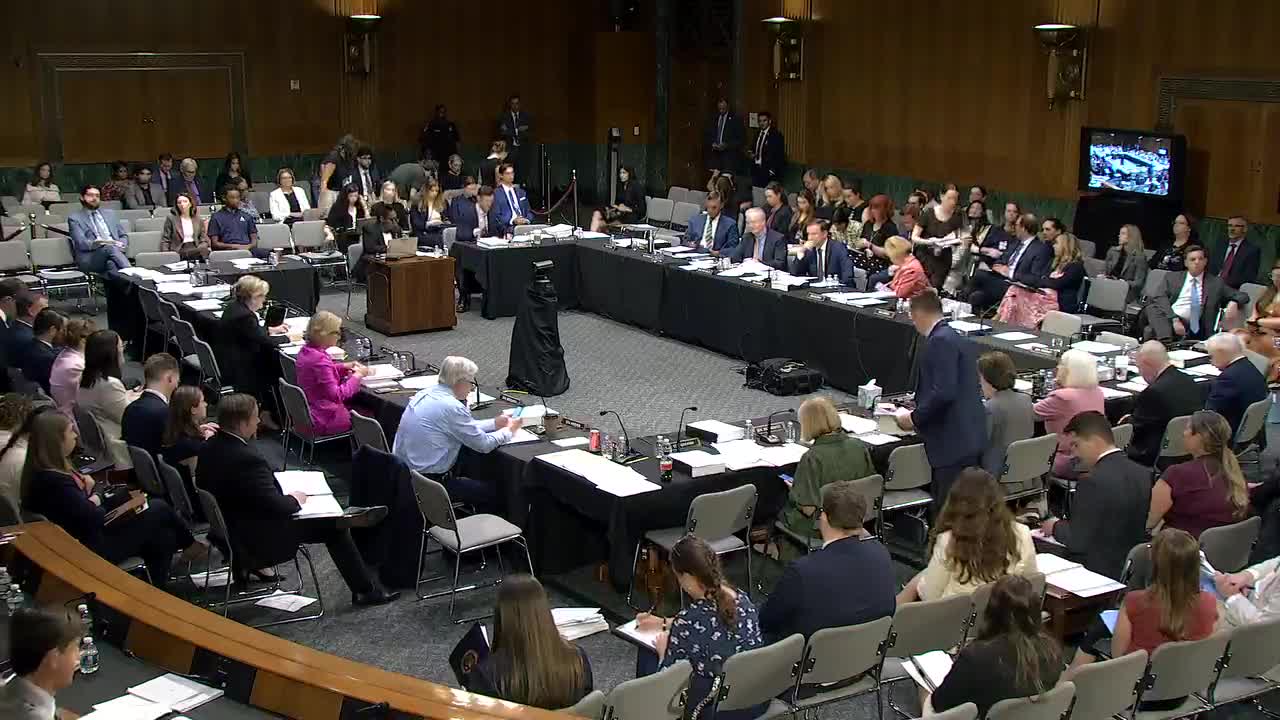Senate Reviews Amendment for Rural Hospitals' Critical Access Designations
July 31, 2025 | Appropriations: Senate Committee, Standing Committees - House & Senate, Congressional Hearings Compilation
This article was created by AI summarizing key points discussed. AI makes mistakes, so for full details and context, please refer to the video of the full meeting. Please report any errors so we can fix them. Report an error »

In a pivotal meeting on July 31, 2025, the U.S. Senate Committee on Appropriations addressed critical issues affecting rural hospitals during the Full Committee Markup of Defense and Labor, Health and Human Services, and Education Appropriations Acts. A key focus was an amendment aimed at protecting struggling rural hospitals from losing their critical access hospital designations, a status vital for their operation and funding.
Senator Hyde-Smith introduced the amendment, which seeks to enhance transparency in the process by requiring the Centers for Medicare and Medicaid Services (CMS) to provide written notifications to congressional appropriations committees before terminating a hospital's critical access status. This notification would include a detailed analysis of the potential impact on rural healthcare and consultations with state officials, acknowledging discrepancies in how hospitals are classified.
Senator Capito expressed support for the amendment, highlighting its importance for rural hospitals in her state and emphasizing the need for continuity in healthcare services. However, the amendment faced opposition from Senators Baldwin and Murray, who argued that it addresses a specific issue rather than the broader challenges facing rural hospitals nationwide, particularly in light of recent Medicaid cuts.
Senator Baldwin criticized the amendment for not providing comprehensive support for all rural hospitals, while Senator Murray echoed concerns about its limited scope and the need for more substantial solutions to the healthcare crisis affecting rural communities.
The discussions underscored the ongoing struggle of rural hospitals, which are increasingly at risk due to financial pressures and policy changes. As the committee deliberates further, the fate of the amendment and its implications for rural healthcare remain uncertain, highlighting the urgent need for effective strategies to support these essential facilities.
Senator Hyde-Smith introduced the amendment, which seeks to enhance transparency in the process by requiring the Centers for Medicare and Medicaid Services (CMS) to provide written notifications to congressional appropriations committees before terminating a hospital's critical access status. This notification would include a detailed analysis of the potential impact on rural healthcare and consultations with state officials, acknowledging discrepancies in how hospitals are classified.
Senator Capito expressed support for the amendment, highlighting its importance for rural hospitals in her state and emphasizing the need for continuity in healthcare services. However, the amendment faced opposition from Senators Baldwin and Murray, who argued that it addresses a specific issue rather than the broader challenges facing rural hospitals nationwide, particularly in light of recent Medicaid cuts.
Senator Baldwin criticized the amendment for not providing comprehensive support for all rural hospitals, while Senator Murray echoed concerns about its limited scope and the need for more substantial solutions to the healthcare crisis affecting rural communities.
The discussions underscored the ongoing struggle of rural hospitals, which are increasingly at risk due to financial pressures and policy changes. As the committee deliberates further, the fate of the amendment and its implications for rural healthcare remain uncertain, highlighting the urgent need for effective strategies to support these essential facilities.
View full meeting
This article is based on a recent meeting—watch the full video and explore the complete transcript for deeper insights into the discussion.
View full meeting